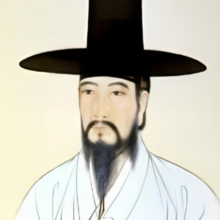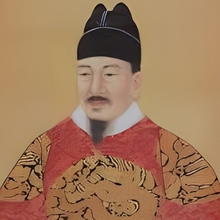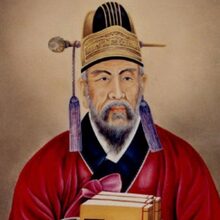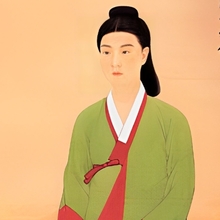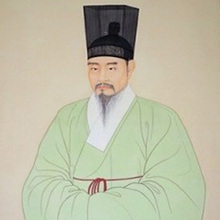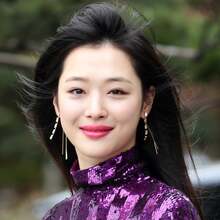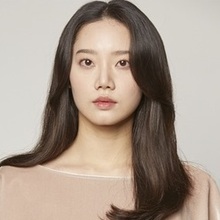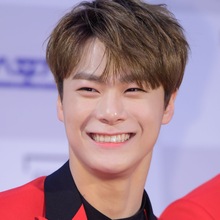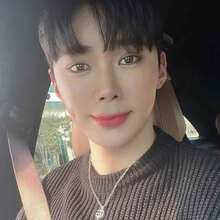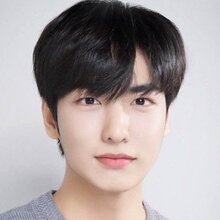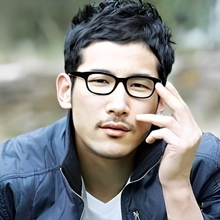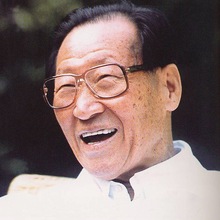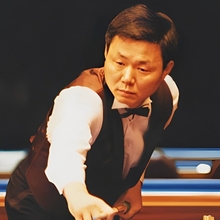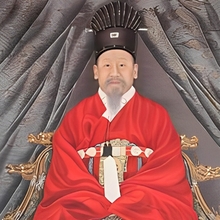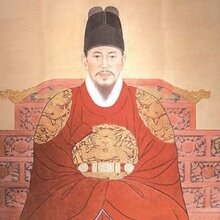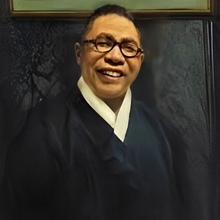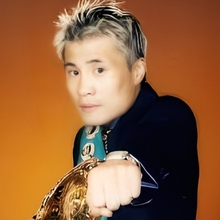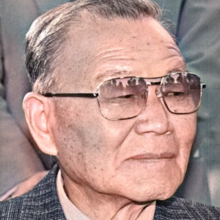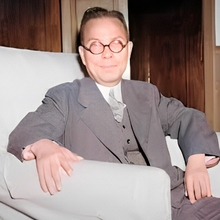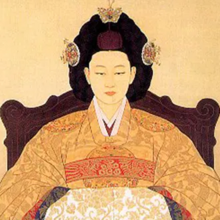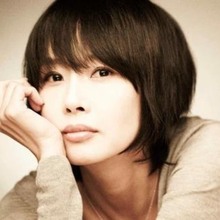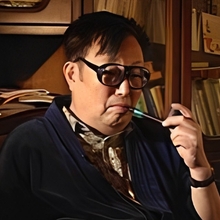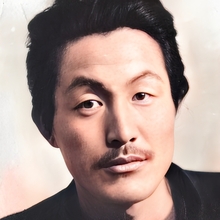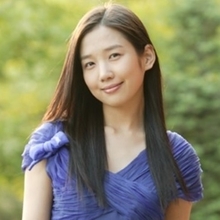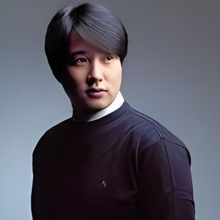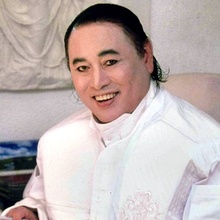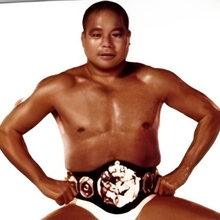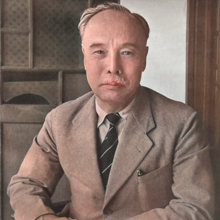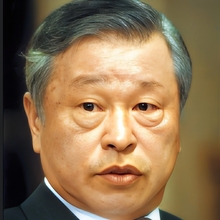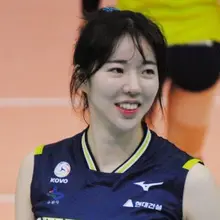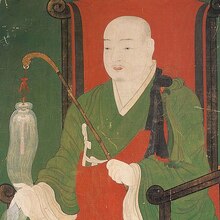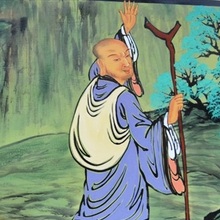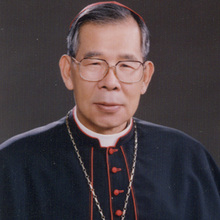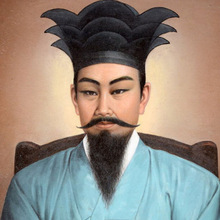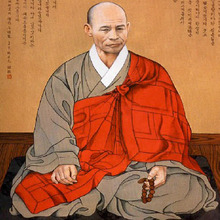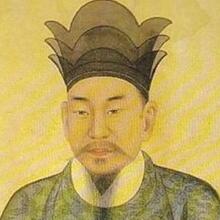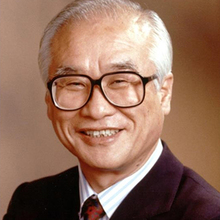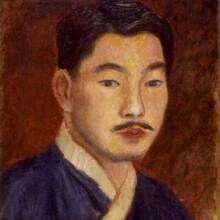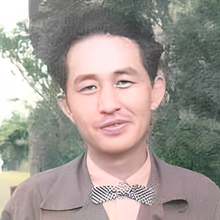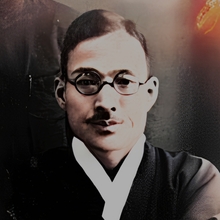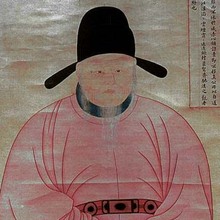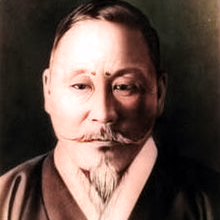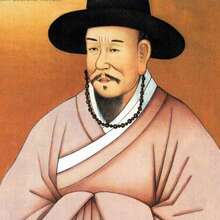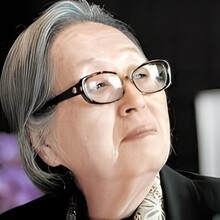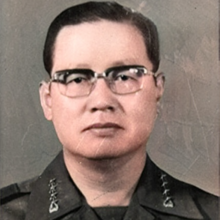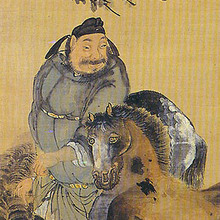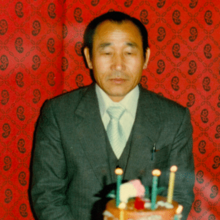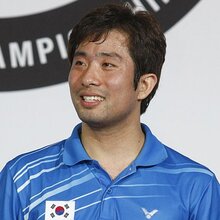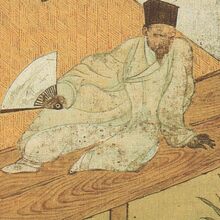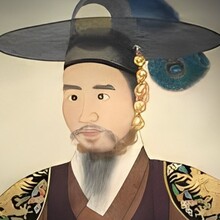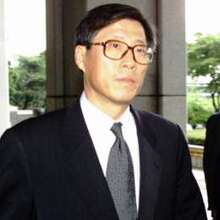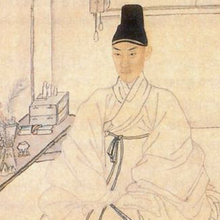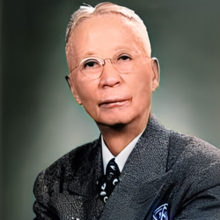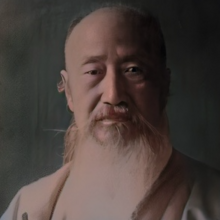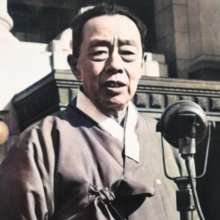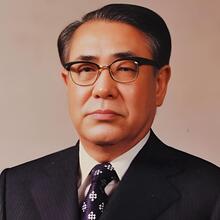 Yun Chi-ho
1864 - 1945
Reformist and nationalist leader
Yun Chi-ho
1864 - 1945
Reformist and nationalist leader
 Kim Seong-su
1891 - 1955
Vice president of South Korea
Kim Seong-su
1891 - 1955
Vice president of South Korea
 Chey Jong-Hyon
1929 - 1998
Chairman of SK Group
Chey Jong-Hyon
1929 - 1998
Chairman of SK Group
 Kim Mi-soo
1992 - 2022
Actress and model
Kim Mi-soo
1992 - 2022
Actress and model
 Yun Bo-seon
1897 - 1990
President of South Korea
Yun Bo-seon
1897 - 1990
President of South Korea
 Sang Lee
1954 - 2004
Three-cushion billiards player and world champion
Sang Lee
1954 - 2004
Three-cushion billiards player and world champion
 Kim Hong-do
1745 - 1806
Genre painter of the Joseon dynasty
Kim Hong-do
1745 - 1806
Genre painter of the Joseon dynasty
 Lee Jung-seob
1916 - 1956
Oil painter
Lee Jung-seob
1916 - 1956
Oil painter
 Goo Hara
1991 - 2019
K-pop idol
Goo Hara
1991 - 2019
K-pop idol
 Yuh Woon-Hyung
1886 - 1947
Provisional government member
Yuh Woon-Hyung
1886 - 1947
Provisional government member
 Choe Deok-sin
1914 - 1989
Foreign minister of South Korea
Choe Deok-sin
1914 - 1989
Foreign minister of South Korea
 Ch'oe Che-u
1824 - 1864
Founder of the Tonghak sect
Ch'oe Che-u
1824 - 1864
Founder of the Tonghak sect
 Kwon Rise
1991 - 2014
Member of Ladies' Code
Kwon Rise
1991 - 2014
Member of Ladies' Code
 Kim Bo-kyung
1976 - 2021
Actress
Kim Bo-kyung
1976 - 2021
Actress
 Gim Hongdo
1745 - 1806
Painter of the Joseon dynasty
Gim Hongdo
1745 - 1806
Painter of the Joseon dynasty
 Wonhyo
617 - 686
Buddhist scholar and commentator
Wonhyo
617 - 686
Buddhist scholar and commentator
 Empress Gi
1315 - 1369
Empress consort of the Yuan dynasty
Empress Gi
1315 - 1369
Empress consort of the Yuan dynasty
 Lee Jong-wook
1945 - 2006
Director-General of the World Health Organization
Lee Jong-wook
1945 - 2006
Director-General of the World Health Organization
 Kim Si-seup
1435 - 1493
scholar and author
Kim Si-seup
1435 - 1493
scholar and author
 Yongjo
1694 - 1776
King of Joseon
Yongjo
1694 - 1776
King of Joseon
 Go Soo Jung
1995 - 2020
Actress and model
Go Soo Jung
1995 - 2020
Actress and model
 Park Chung-hee
1917 - 1979
President of South Korea
Park Chung-hee
1917 - 1979
President of South Korea
 Jeong Dojeon
1342 - 1398
Chief State Councillor of Joseon
Jeong Dojeon
1342 - 1398
Chief State Councillor of Joseon
 Gojong of Korea
1852 - 1919
The last king of Joseon and the first emperor
Gojong of Korea
1852 - 1919
The last king of Joseon and the first emperor
 Pak Kyongni
1926 - 2008
Novelist
Pak Kyongni
1926 - 2008
Novelist
 Chun Doo-hwan
1931 - 2021
Military general and politician
Chun Doo-hwan
1931 - 2021
Military general and politician
 Jeong Seung-hwa
1929 - 2002
22nd Republic of Korea Army Chief of Staff
Jeong Seung-hwa
1929 - 2002
22nd Republic of Korea Army Chief of Staff
 Roh Tae-woo
1932 - 2021
Politician and army general
Roh Tae-woo
1932 - 2021
Politician and army general
 Park Won-soon
1956 - 2020
Mayor of Seoul
Park Won-soon
1956 - 2020
Mayor of Seoul
 Sejong the Great
1397 - 1450
King of Joseon, inventor of Hangul
Sejong the Great
1397 - 1450
King of Joseon, inventor of Hangul
 Ahn Sahng-hong
1918 - 1985
Founder of the Church of God Jesus Witnesses
Ahn Sahng-hong
1918 - 1985
Founder of the Church of God Jesus Witnesses
 Kim Kyu-sik
1881 - 1950
Vice President of the Provisional Government
Kim Kyu-sik
1881 - 1950
Vice President of the Provisional Government
 Uisang
625 - 702
Founder of the Hwaeom school of Buddhism
Uisang
625 - 702
Founder of the Hwaeom school of Buddhism
 Chung Ju-yung
1915 - 2001
Founder of Hyundai Group
Chung Ju-yung
1915 - 2001
Founder of Hyundai Group
 Charles William Joseph Emile Le Gendre
1830 - 1899
Army officer and diplomat
Charles William Joseph Emile Le Gendre
1830 - 1899
Army officer and diplomat
 Kim Ki-young
1919 - 1998
Film director, screenwriter, producer, editor
Kim Ki-young
1919 - 1998
Film director, screenwriter, producer, editor
 Deokhye
1912 - 1989
Last princess of the Korean Empire
Deokhye
1912 - 1989
Last princess of the Korean Empire
 Philip Jaisohn
1864 - 1951
Korean independence activist and journalist
Philip Jaisohn
1864 - 1951
Korean independence activist and journalist
 Jang Seung-eop
1843 - 1897
Painter of the late Joseon Dynasty
Jang Seung-eop
1843 - 1897
Painter of the late Joseon Dynasty
 Go Yoo-min
1995 - 2020
Professional volleyball player
Go Yoo-min
1995 - 2020
Professional volleyball player
 Choi Kyu-hah
1919 - 2006
President of South Korea
Choi Kyu-hah
1919 - 2006
President of South Korea
 Jeong Seon
1676 - 1759
Landscape painter
Jeong Seon
1676 - 1759
Landscape painter
 Jang Ja-yeon
1980 - 2009
Actress in Boys Over Flowers
Jang Ja-yeon
1980 - 2009
Actress in Boys Over Flowers
 Yun Posun
1897 - 1990
President of South Korea
Yun Posun
1897 - 1990
President of South Korea
 Crown Prince Sado
1735 - 1762
Regent of Joseon
Crown Prince Sado
1735 - 1762
Regent of Joseon
 Choi Jin-sil
1968 - 2008
Actress
Choi Jin-sil
1968 - 2008
Actress
 Ku Sang
1919 - 2004
Poet
Ku Sang
1919 - 2004
Poet
 Andrew Kim Taegon
1821 - 1846
First Korean-born Catholic priest
Andrew Kim Taegon
1821 - 1846
First Korean-born Catholic priest
 Ahn Jae-hwan
1972 - 2008
Actor and singer
Ahn Jae-hwan
1972 - 2008
Actor and singer
 Sulli
1994 - 2019
Singer and actress
Sulli
1994 - 2019
Singer and actress
 Roh Moo-hyun
1946 - 2009
President of South Korea and human rights activist
Roh Moo-hyun
1946 - 2009
President of South Korea and human rights activist
 Stephen Kim Sou-hwan
1922 - 2009
Cardinal and Archbishop of Seoul
Stephen Kim Sou-hwan
1922 - 2009
Cardinal and Archbishop of Seoul
 Cho Jang Mi
1994 - 2022
Twitch streamer and volleyball player
Cho Jang Mi
1994 - 2022
Twitch streamer and volleyball player
 Kim Woo-jung
1936 - 2019
Founder and chairman of Daewoo Group
Kim Woo-jung
1936 - 2019
Founder and chairman of Daewoo Group
 Mas Oyama
1923 - 1994
Karate master and founder of Kyokushin Karate
Mas Oyama
1923 - 1994
Karate master and founder of Kyokushin Karate
 Kim Dae-jung
1924 - 2009
Politician and activist
Kim Dae-jung
1924 - 2009
Politician and activist
 Isang Yun
1917 - 1995
Composer of avant-garde music
Isang Yun
1917 - 1995
Composer of avant-garde music
 Heo Jun
1539 - 1615
Royal physician of Joseon dynasty
Heo Jun
1539 - 1615
Royal physician of Joseon dynasty
 Yo-Sam Choi
1973 - 2008
world boxing champion
Yo-Sam Choi
1973 - 2008
world boxing champion
 Yi Saek
1328 - 1396
Neo-Confucian scholar and literary figure
Yi Saek
1328 - 1396
Neo-Confucian scholar and literary figure
 Kim Young-sam
1927 - 2015
President of South Korea
Kim Young-sam
1927 - 2015
President of South Korea
 Chajang Yulsa
636 - 713
Buddhist monk and scholar
Chajang Yulsa
636 - 713
Buddhist monk and scholar
 Chang Myon
1899 - 1966
Prime minister of South Korea
Chang Myon
1899 - 1966
Prime minister of South Korea
 Lee Jihan
1998 - 2022
Actor and singer
Lee Jihan
1998 - 2022
Actor and singer
 Yeongjo of Joseon
1694 - 1776
King of Joseon
Yeongjo of Joseon
1694 - 1776
King of Joseon
 Jeong Da-bin
1980 - 2007
Actress
Jeong Da-bin
1980 - 2007
Actress
 Lee Eon
1981 - 2008
Actor and model
Lee Eon
1981 - 2008
Actor and model
 Cha In Ha
1992 - 2019
Actor and singer
Cha In Ha
1992 - 2019
Actor and singer
 Empress Myeongseong
1851 - 1895
Empress consort of Gojong and political leader
Empress Myeongseong
1851 - 1895
Empress consort of Gojong and political leader
 Kim Ja-ok
1951 - 2014
actress
Kim Ja-ok
1951 - 2014
actress
 Chung Mong-hun
1948 - 2003
Chairman of Hyundai Asan
Chung Mong-hun
1948 - 2003
Chairman of Hyundai Asan
 Heo Nanseolheon
1563 - 1589
poet and painter of the Joseon dynasty
Heo Nanseolheon
1563 - 1589
poet and painter of the Joseon dynasty
 Jung Jae-sung
1982 - 2018
Badminton player
Jung Jae-sung
1982 - 2018
Badminton player
 Ch'oe Che-u
1824 - 1864
Founder of the Tonghak sect
Ch'oe Che-u
1824 - 1864
Founder of the Tonghak sect
 Yi Sun-sin
1545 - 1598
Naval commander
Yi Sun-sin
1545 - 1598
Naval commander
 Kim Jong-hyun
1990 - 2017
Lead vocalist of SHINee and solo artist
Kim Jong-hyun
1990 - 2017
Lead vocalist of SHINee and solo artist
 Lee Eun-ju
1980 - 2005
Actress
Lee Eun-ju
1980 - 2005
Actress
 Sejong the Great
1397 - 1450
King of Joseon and inventor of Hangul
Sejong the Great
1397 - 1450
King of Joseon and inventor of Hangul
 Shin Kyuk-ho
1921 - 2020
Founder of Lotte Corporation
Shin Kyuk-ho
1921 - 2020
Founder of Lotte Corporation
 Kim In-hyeok
1995 - 2022
Professional volleyball player
Kim In-hyeok
1995 - 2022
Professional volleyball player
 Gojong of Korea
1852 - 1919
Emperor of Korea and reformer
Gojong of Korea
1852 - 1919
Emperor of Korea and reformer
 Andre Kim
1935 - 2010
Fashion designer
Andre Kim
1935 - 2010
Fashion designer
 Jeongye Daewongun
1785 - 1841
Father of King Cheoljong of Joseon
Jeongye Daewongun
1785 - 1841
Father of King Cheoljong of Joseon
 Han Yongun
1879 - 1944
Buddhist reformer
Han Yongun
1879 - 1944
Buddhist reformer
 Son Byong-hi
1861 - 1922
Third leader of Donghak (Eastern learning)
Son Byong-hi
1861 - 1922
Third leader of Donghak (Eastern learning)
 Chu Ki-chol
1897 - 1944
Presbyterian minister
Chu Ki-chol
1897 - 1944
Presbyterian minister
 Lee Kun-hee
1942 - 2020
Chairman of Samsung Group
Lee Kun-hee
1942 - 2020
Chairman of Samsung Group
 Kim Gu
1876 - 1949
Leader of the Korean independence movement
Kim Gu
1876 - 1949
Leader of the Korean independence movement
 Go Hui-dong
1886 - 1965
First Korean painter to adopt Western styles
Go Hui-dong
1886 - 1965
First Korean painter to adopt Western styles
 Heungseon Daewongun
1821 - 1898
Regent of Joseon and father of Emperor Gojong
Heungseon Daewongun
1821 - 1898
Regent of Joseon and father of Emperor Gojong
 Kintaro Ohki
1929 - 2006
Professional wrestler and Ssireum player
Kintaro Ohki
1929 - 2006
Professional wrestler and Ssireum player
 Heo Gyun
1569 - 1618
Novelist, poet, and reformist
Heo Gyun
1569 - 1618
Novelist, poet, and reformist
 Moon Bin
1998 - 2023
K-pop idol
Moon Bin
1998 - 2023
K-pop idol
We Need -- admin in

